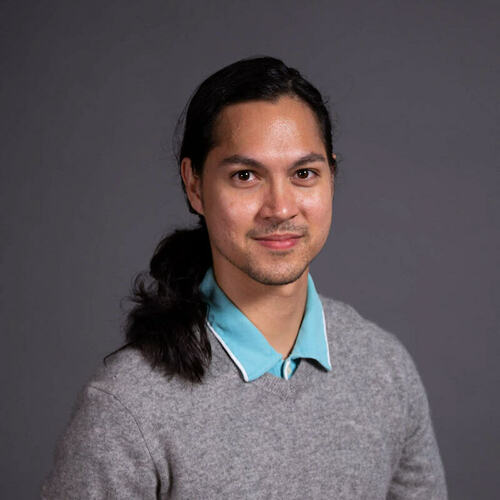Careers
Study Music. Do Anything.
What can I do with a Music major?
Our graduates thrive in a wide variety of fields. The blend of commitment, analysis, and passion that comes from the study of music can be applied to the study of law, math, business — you name it. Music alumni have found success across the graduate school and job spectrum, have embraced the world, and continue to enjoy, whether as a profession or an avocation, a subject that brings real joy.
Skills you'll learn
- Ability to articulate complex thoughts and theories
- Effective oral communication
- Strong writing
- Team Work
- Critical thinking and analytical reasoning
- Ability to apply knowledge to real-world settings
- Ethical judgment and decision making
- Ability to analyze and solve problems with people from different backgrounds

Andrew White ’12
Ph.D. program in music history and theory, University of Chicago
“Learning to ‘think in music’ has helped me in lots of different ways unrelated to music. Performing difficult pieces with a small ensemble made me more attentive to other people's needs in group projects and sharpened my verbal and nonverbal communication skills. My experience at Notre Dame taught me to have a very detailed plan of what you need to do, break apart projects into smaller chunks, and use your time wisely day to day.”
-
Andrew White ’12
Ph.D. program in music history and theory, University of Chicago
“Learning to ‘think in music’ has helped me in lots of different ways unrelated to music. Performing difficult pieces with a small ensemble made me more attentive to other people's needs in group projects and sharpened my verbal and nonverbal communication skills. My experience at Notre Dame taught me to have a very detailed plan of what you need to do, break apart projects into smaller chunks, and use your time wisely day to day.”
-
Camilla Tassi ’16
Production designer and research fellow, Yale School of Drama
“The benefits of studying music are many — performance taught me how to get up in front of a crowd and give a talk confidently. History taught me how to interface with language and notice patterns. A music education allows you to become oriented toward community, to care about others and communicate with them.”
-
Daniel Malloy Crupi ’11
Executive Director, Santa Fe Symphony
“I know that the reason I was able to successfully pivot from music performance into administration was due in large part to my experiences at Notre Dame. The liberal-arts approach allowed me to be more flexible, to question and think critically, and to develop effective communication and collaboration skills.”
-
Nicholas Shaneyfelt ’09
Assistant Professor of Piano, Luther College
“I look back fondly on my time at Notre Dame as a conservatory-grade experience in the framework of a liberal arts education. I had access to quality instruments, incredible performance facilities, and coaching by faculty mentors who became friends and colleagues. The B.A. in Music sowed the seeds of what I think it means to be a 21st-century musician: striving to be a consummate performer, but one who is well-spoken, passionate, and versatile.”
-
MurphyKate Montee ’13
Ph.D program in mathematics, University of Chicago
“While I do not use music theory in my graduate work, studying music kept me balanced as I dived deeper and deeper into abstract mathematics. The ‘soft skills’ I learned in my music major, such as regular practice and working both collaboratively and alone, have been skills I use every day as a graduate student. The performance techniques I learned on the opera stage apply to my teaching, and I frequently get student reviews that talk about how engaging I am as a lecturer (and how easy it is to understand my speaking voice!).”
100% of recent Notre Dame Music majors found full-time employment, enrolled in graduate school, entered service programs, joined the military, or launched independent projects within six months of graduation.
Note: Outcomes data comes from First Destination reports, a survey of recent graduates conducted by the Notre Dame Center for Career Development and Office of Strategic Planning and Institutional Research. Status is known for more than 90% of each graduating class.
Independent projects include activities such as writing a novel, making a film or fine arts project, traveling the world and other gap-year activities, internships, etc.